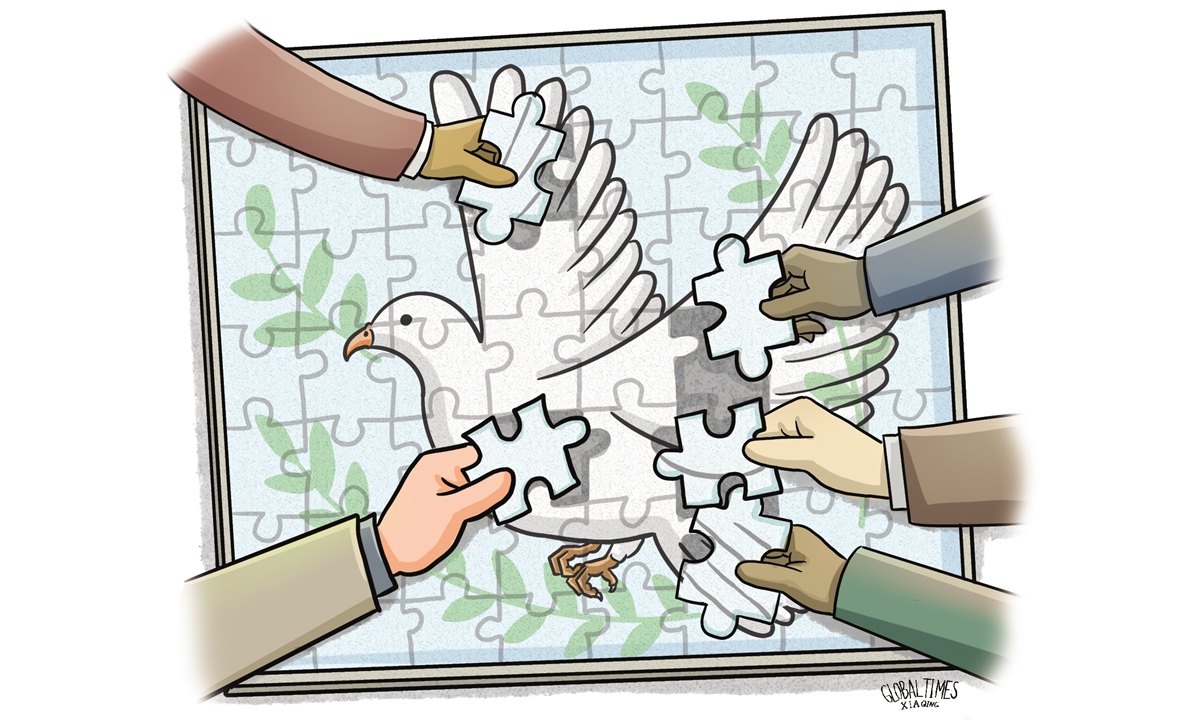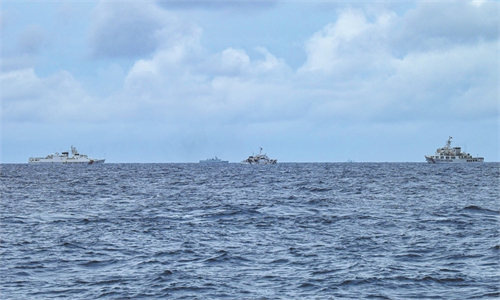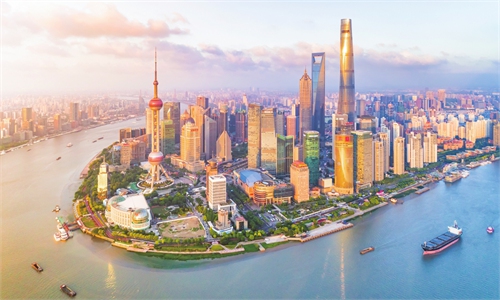
Illustration: Xia Qing/GT
In the face of various international and regional hot issues, the "World War III alarm" has sounded frequently, such as "the world is on the verge of WWIII" and "there is a need to be fully prepared for WWIII." This alarm intensifies people's worries about the turbulent situation around the world.Upon closer observation, different reasons behind these alarms can be seen. Some are extremely worried that the situation will worsen or even get out of control. For example, amid the Ukraine crisis and the new round of the Palestine-Israel conflict, relevant countries, especially major powers, lack consensus on how to address the political and battlefield deadlock, while some countries have adopted panic policy to respond. Meanwhile, some countries attempt to find "reasonable explanations" for their security policy adjustments with the "WWIII alarm." Of course, perhaps some people use this as a tool to incite public opinion.
Whatever their reasons or intentions, the scarring effect of the two world wars on all mankind has not been forgotten, and the unstoppable trend of peace, development and win-win cooperation in today's world is undervalued.
First, the world is well aware that WWIII would certainly cause heavy damage to human civilization. With the emergence and development of nuclear weapons, nuclear war is generally regarded as the inevitable form WWIII would take. The global concerns about the risk of nuclear war are also increasing. But the stance put forward in the Joint Statement of the Leaders of the Five Nuclear-Weapon States on Preventing Nuclear War and Avoiding Arms Races on January 3, 2022 that "a nuclear war cannot be won and must never be fought" remains firm.
No-first-use of Nuclear Weapons Initiative Working Paper submitted by China In July 2024 advocates the five nuclear-weapon states to negotiate and conclude a treaty on "mutual no-first-use of nuclear weapons" or issue a relevant political statement, which has also been supported by the vast majority of countries. The world has a clear understanding of the tremendous damage of a nuclear war, and will not tolerate any challenges to the common value of firmly safeguarding the development and continuation of human civilization.
Second, it is essential to distinguish between the inevitability of historical trends and the contingency of historical events. When comparing the history before the outbreak of the first two world wars, one can identify certain subtle similarities between those times and the so-called signs of a World War III in the current situation. For example, the occasional escalation of territorial disputes left over from history, the weakening effectiveness of political and security coordination mechanisms, and the lack of mutual trust between major powers. However, alongside the pursuit of economic modernization, human society has also been striving to build a relatively stable international security framework. It is precisely due to the profound reflection on the two world wars that countries around the world, having learned painful lessons, established an international system centered on the UN, an international order based on international law, and basic norms of international relations grounded in the purposes and principles of the UN Charter. These have become key in preventing humanity from repeating another disastrous mistake. Although frequent regional conflicts have posed certain challenges to the UN's role in maintaining international peace and security, countries still regard it as the most authoritative and representative collective security mechanism.
Finally, the consensus on prioritizing development will not be shaken by the "World War III alarm." The continued expansion of organizations such as the Shanghai Cooperation Organization and the BRICS mechanism indicates that the vast majority of developing countries and the Global South are dissatisfied with the global agenda's focus on security over development. They are increasingly aware of the need for strategic autonomy and are seeking to refocus on development cooperation through genuine multilateral mechanisms, rather than choosing sides based on the logic of the "World War III alarm."
To alter the internal linkage between deficits in peace, development, security and governance, the international community needs to align with the historical trends of peace and development.
The author is the deputy director and a research fellow of the Institute for Global Governance Studies at Shanghai Institutes for International Studies. opinion@globaltimes.com.cn


